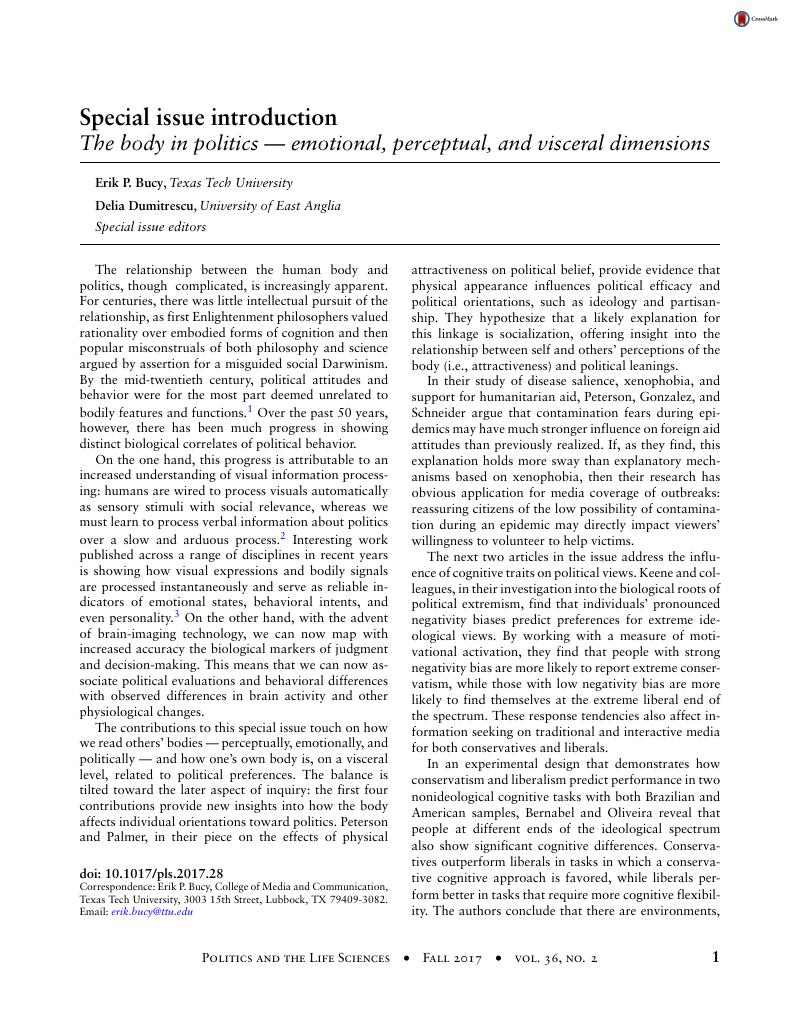No CrossRef data available.
Article contents
Special issue introduction
The body in politics — emotional, perceptual, and visceral dimensions
Published online by Cambridge University Press: 27 December 2017
Abstract
An abstract is not available for this content so a preview has been provided. Please use the Get access link above for information on how to access this content.

- Type
- Introduction
- Information
- Copyright
- © Association for Politics and the Life Sciences 2017
References
Losco, J., “From outrage to orthodoxy? Sociobiology and political science at 35,”
Politics and the Life Sciences
, 2011, 30(1): 80–84.Google Scholar
Grabe, M. E. and Bucy, E. P., Image Bite Politics: News and the Visual Framing of Elections (New York: Oxford University Press, 2009).Google Scholar
Dumitrescu, D., “Nonverbal communication in politics: A review of research developments, 2005–2015,”
American Behavioral Scientist
, 2016, 60(14): 1656–1675.Google Scholar
See P. A. Stewart, F. K. Salter, and M. Mehu, “Taking leaders at face value: Ethology and the analysis of televised leader displays,” Politics and the Life Sciences, 2009, 28(1): 48–74.Google Scholar
Bucy, E. P. and Grabe, M. E., “Taking television seriously: A sound and image bite analysis of presidential campaign coverage, 1992–2004,”
Journal of Communication
, 2007, 57(4): 652–675.Google Scholar


